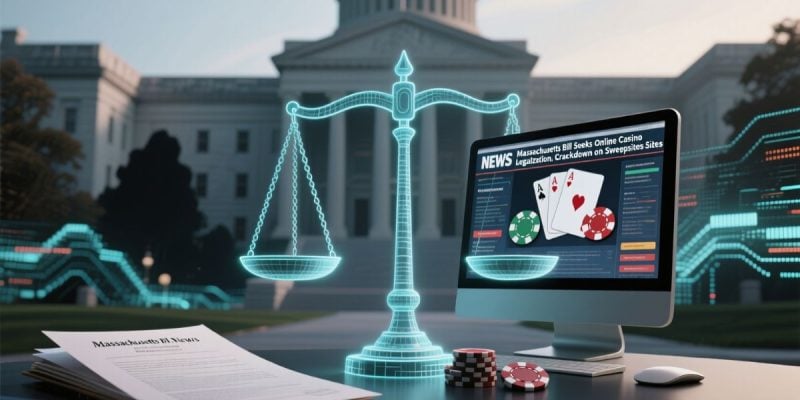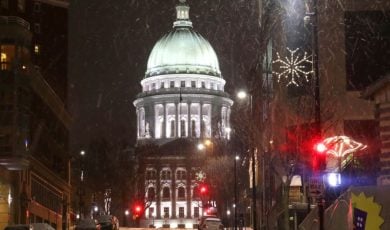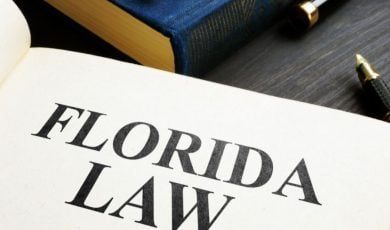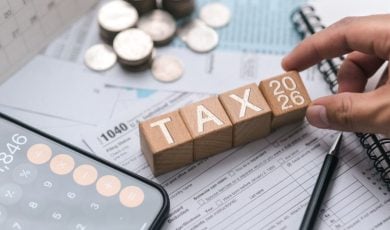BOSTON — On Aug. 18, 2025, House Bill 4431 was introduced by Rep. David K. Muradian Jr. in the Massachusetts House of Representatives. The measure would legalize and regulate real-money online casinos in the state. It would also prohibit online sweepstakes-style providers that currently operate in a regulatory gray area using two-currency systems.
As a sponsor and member of the Joint Committee on Economic Development and Emerging Technologies, Muradian has described the legislation as a consumer protection bill that would also bring substantial tax revenue.
Lawmakers and industry proponents argue that a well-managed regulatory system would protect players from unauthorized operators while providing a new source of income for the commonwealth through the Massachusetts Gaming Commission.
How House Bill 4431 Would Regulate Massachusetts Online Casinos
House Bill 4431 proposes a licensing framework under which Massachusetts’ three existing casinos would be eligible to launch regulated online casino platforms. If passed, Encore Boston Harbor, MGM Springfield and Plainridge Park Casino could each operate two distinct gambling brands.
The Massachusetts Gaming Commission could issue up to four additional licenses not tied to a land-based operator. Licensees would pay a $5 million fee for an initial five-year permit, renewable at the same cost. The bill sets a tax rate of 20% on operators’ adjusted gross revenue.
Approved games would include:
- Poker
- Real-Money Blackjack
- Roulette
- Online Slots
- Craps
- Game-show-style offerings
- Live dealer casino formats
- Any other games approved by the commission
These games mirror traditional casino floor options. The licensing and regulatory structure is designed to balance iGaming expansion with revenue generation and consumer safeguards.
Bill Targets Sweepstakes Casino Gambling in Legal Gray Area
Sweepstakes casinos currently thrive in Massachusetts by operating in a legal gray area. They use a two-currency system in which players buy “gold coins” for entertainment and receive “sweepstakes coins” in promotions, which can be exchanged for cash or prizes.
While this practice is not prohibited under federal sweepstakes guidelines, critics say the model allows operators to avoid standard gaming laws and licensing fees. Bill H.4431 would change that by making sweepstakes platforms explicitly illegal in Massachusetts.
Supporters say the measure would protect consumers from largely unregulated gambling platforms, reduce uncontrolled spending and introduce transparency in enforcement.
If enacted, the legislation could force popular sweepstakes providers to leave or shut down in the state. Many of these platforms already have large followings among Massachusetts players.
The Economic Case for Legalizing Online Casinos in Massachusetts
Supporters of House Bill 4431 argue that legalizing iGaming in Massachusetts could deliver a major new revenue stream. DraftKings estimates the state could collect between $230 million and $275 million annually in recurring taxes based on a 20% levy and players shifting to regulated platforms, as reported by Citizen Portal.
Proponents also contend legalization may expand overall casino revenue, citing early gains in both land-based and online markets nationwide. They argue that additional tax income would support economic development and fund public services, disease control, infrastructure and worker welfare.
Stronger Player Protections in Massachusetts’ iGaming Bill
The bill places a strong emphasis on player protection. According to SBC Americas, it directs a portion of iGaming tax receipts to a newly created Player Health Program.
The initiative would expand responsible gambling efforts by investing in education campaigns, addiction treatment and tools to help vulnerable players. Lawmakers behind the bill say it would provide stronger safeguards than the current unregulated sweepstakes market.
Why the Bill Divides Lawmakers and Advocates
Casino operators, iGaming companies and lawmakers have expressed support for the proposal, pointing to its potential to improve consumer protection and generate steady revenue. DraftKings and other industry players argue that legalization would create a safer environment for players while strengthening the Massachusetts casino sector.
Opponents remain skeptical. Gambling critics and some local activists warn that expanding access could increase addiction and harm vulnerable populations. Others are split over taxation, debating whether the rate should be 15% or closer to 20%.
Timeline: When the Massachusetts Online Casino Bill Could Pass
House Bill 4431 has been sent to the Joint Committee on Economic Development and Emerging Technologies for review. According to a post by Ballot Pedia, Lawmakers will hold hearings and may propose amendments before the bill moves forward, with the potential for passage before Nov. 19, 2025, the end of the legislative session.
$1 have failed before, but the proposal continues to receive strong backing from industry stakeholders. Advocates say it is gaining traction now because of the projected revenue boost. Developments in other states already offering iGaming could also influence the debate.








